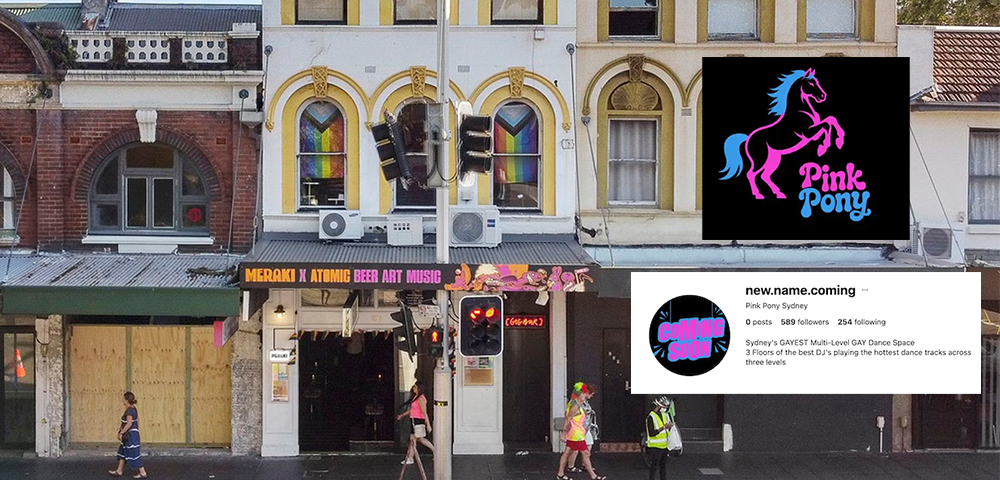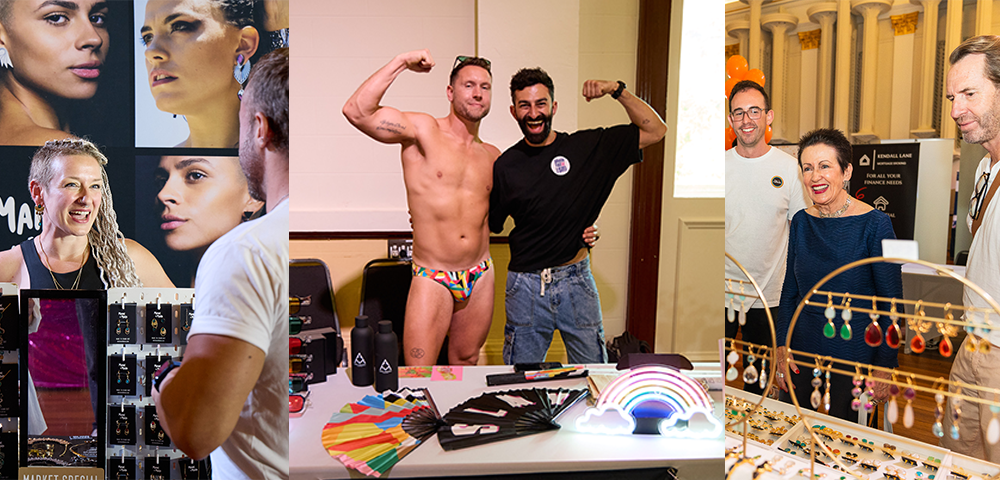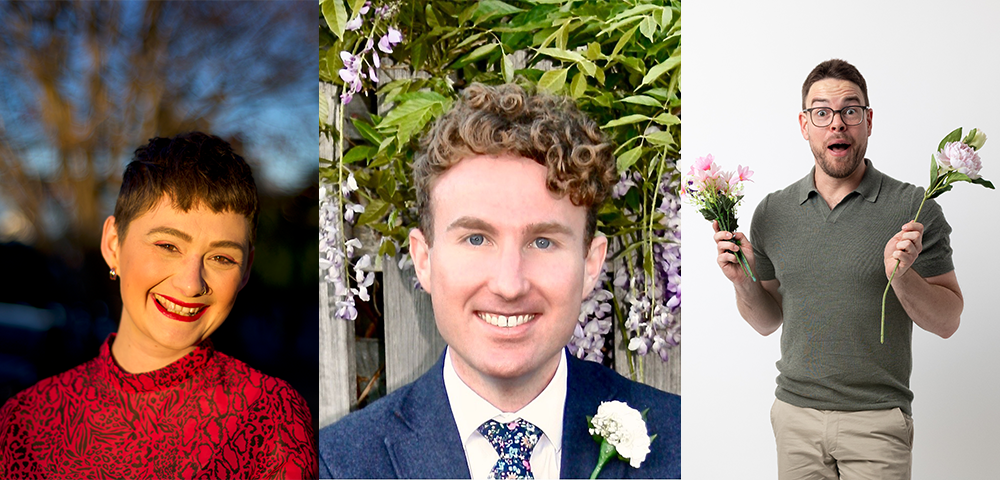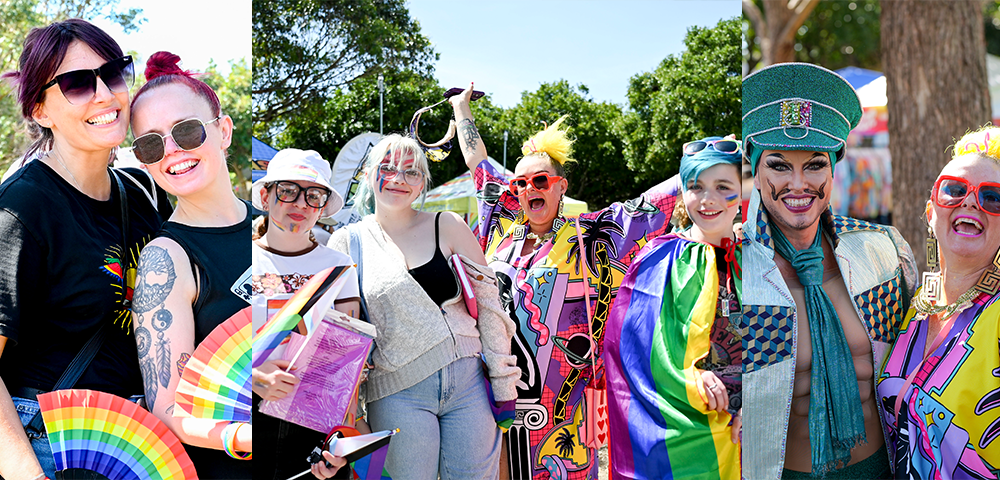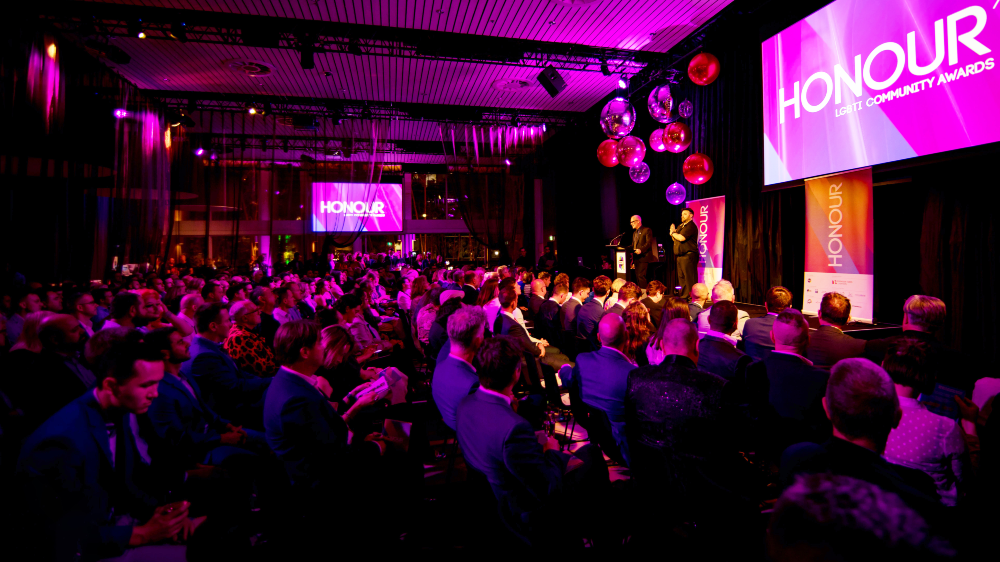
Who’s queer?
Lock up your children! Confiscate the tellies! The queers have taken over Doctor Who! Well, in a fashion.
It is no coincidence the creator of Queer As Folk, Russell T. Davies, is now the head writer and executive producer of the new series of Doctor Who (Saturday 7:30pm, ABC TV). Davies and the good Doctor go way back.
In the UK version of Queer As Folk, Davies’s semi-autobiographical central character Vince was a huge Doctor Whofan. In a key scene from the series Vince asks his boyfriend how many of the actors who’ve played the Doctor he can name. When the boyfriend struggles to come to grips with the question, Vince ends the relationship.
Was this just a quirky plot device to illustrate Vince’s nerdy fan side? Examine the character and the show closely and the links between Doctor Who, Queer As Folk, queerness and fandom start to pop up everywhere.
In fact, Doctor Who has always been a little bit queer. Consider the camp qualities the show possesses: wobbly sets, phallic-shaped one-eyed monsters, the doctor’s flamboyant costumes, and a nemesis named The Master. The list goes on.
But Doctor Who has also had stories with queer subtexts. One such story called The Happiness Patrol is set on a planet where unhappiness is outlawed. It features pink-wigged law enforcers whose menacing catchcry is have a nice day.
It also gives us the campest of Doctor Who monsters, the Kandyman, a villain made out of liquorice all-sorts who drowns his unhappy victims in fondant surprise.
Thankfully, the Doctor ensures that the Kandyman comes to a sticky end. He also topples the government led by Helen A, a character who many fans have suggested resembles Margaret Thatcher, the ultimate antithesis of camp.
Fans of the show have circulated quite sophisticated queer interpretations of the episode. They see it as a scathing critique of Thatcher’s attempts to clamp down on the promotion of homosexuality in the 1980s.
The unhappy citizens of the fictitious Terra Alpha were driven underground or forced to disappear by a regime that allowed only one emotional option, just as some would prefer we all adhered to one sexual option -“ heterosexuality. For many fans this story was a proud and angry attack on government policy.
The queerness of Doctor Who doesn’t end there. After the original program ceased production in 1989 a series of original novels based on the show were launched. Fans were invited to submit manuscripts.
Slowly but surely a large number of queer and queer-friendly authors from the ranks of fandom started to shape the Doctor Who narrative to suit the books’ more adult readers.
One of these authors was Russell T. Davies. Davies’s novel, Damaged Goods, provided readers with frank depictions of a number of homosexual characters.
Near the start of the novel a closeted man cruises for sex in the local cemetery. The Doctor’s muscle-bound, blond companion, Chris, also has spur-of-the-moment sex in the back seat of a car with another openly gay character.
No longer subtext, the queerness lurking below the surface of Doctor Who became a strong and visible theme running through a number of books in the series.
Travel forward in time to 2005 and Davies is now in charge of relaunching the series. He is joined by a number of queer and queer-friendly authors who also wrote Doctor Who novels.
Mark Gatiss, author of a number of Who novels, and one of the creators of the disturbing British comedy The League Of Gentleman, wrote episode three. Paul Cornell, who invented a bisexual companion, Benny, for the Doctor Who novels, penned the eighth episode.
And the UK Queer As Folk‘s script editor Matthew Jones will write two episodes for the second series. Jones is famous for coming out in his regular column in the show’s official magazine, and as a fan was one of the most vocal figures promoting the queer interpretation of The Happiness Patrol.
All of this suggests Doctor Who is in safe (queer) hands. But it hasn’t always been smooth sailing.
When the BBC decided to try a US version of the series in 1996, the resulting telemovie starring Paul McGann featured a notorious scene in which the new Doctor kisses his new female companion, twice. Fans were far from happy, possibly because a large proportion of them seem to be gay.
There’s a link to Queer As Folk here too. In a conversation with his best friend Stuart (who coincidentally can name all the actors who’ve played the Doctor), Vince argues that Paul McGann doesn’t count.
Although McGann’s disqualification is never explained it seems that Davies, talking through his characters, isn’t so happy about the kiss either. He should therefore be aware of the risks involved in introducing such a heterosexual relationship into the Doctor Who mix.
Conversely, the new series is clearly marketed as a family show, and conservative voices will no doubt make a fuss if there’s any hint of queer hanky-panky in the TARDIS.
But does this mean that queer relationships and themes in the show will once more be relegated to the realm of metaphor or connotation? It seems unlikely.
The British could teach us a thing or two about producing queer-friendly television. After all, Queer As Folk originated there, they’ve regularly had gay contestants in the Big Brother house and their popular soapie Coronation Street now has a regular gay character.
They’ve given the world shows like Tipping The Velvet (a lesbian period drama) and Davies’s own Bob And Rose (a gay man and a straight woman fall in love).
Add Doctor Who to this list. Episode nine of the new series introduces a fellow time traveller from the future, Captain Jack Harkness (played by the openly gay and very sexy Broadway musical star John Barrowman), who is best described as omnisexual.
Apparently sexualities are much more fluid in the 51st century. If there’s to be another kiss between the Doctor and one of his companions it is just as likely to be between the Doctor and Jack as it is between the Doctor and his female companion Rose.
But perhaps it would be better if the Doctor’s sexuality were left alone. He is, after all, an enigma. The who in Doctor Who is a question that encompassed his entire being, including his sexual identity.
This is perhaps what makes Doctor Who such a compelling show. He isn’t your typical superhero. He’s almost a blank canvas, and many queer fans have justified their love for the show by explaining that an asexual central character leaves open the possibility that he could be gay.
But it equally allows for him to be straight, bisexual, pansexual -¦ you name it. Surely this is as queer as it gets.
The Doctor is a unique figure in popular culture. This could explain why in the US version of Queer As Folk Michael (the US version of Vince) is a fan not of a real cultural product, but of the fictitious comic books of Captain Astro. Perhaps there is no cultural equivalent to Doctor Who in the US.
The developments in the US Queer As Folk are thus interesting to note. Comic book superheroes are almost always coded as explicitly straight and any hint of ambiguous sexuality is denied.
Captain Astro’s ambiguous sexuality eventually means that political pressure is too great and the character is killed off by the comic book company.
Michael and Justin then team up to create their own openly gay superhero as a replacement. Their authorship of Rage, who is modelled on their friend Brian, gives them control over the way in which their superhero and his sexuality are depicted. It is just this kind of control Davies now holds over Doctor Who.
The fans have taken over the show, and so have the queers. If you’re looking for a show that combines the cheesy and the classy, that offers comedy and drama, that will appeal to queers and straights alike, look no further than the new series of Doctor Who.
And don’t forget to look out for the queer bits in the original series. Doctor Who has a queer past, and it looks like it has a queer future.
Doctor Who screens Sundays on ABC. The bisexual Captain Jack makes his first appearance 16 July.
Patrick Porter is a research student in Cinema Studies at Melbourne University where he is completing a thesis on Buffy and Angel.




